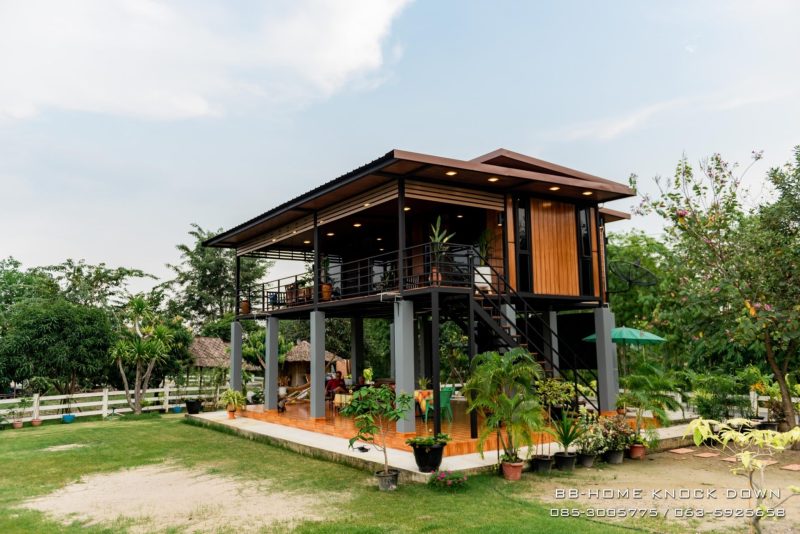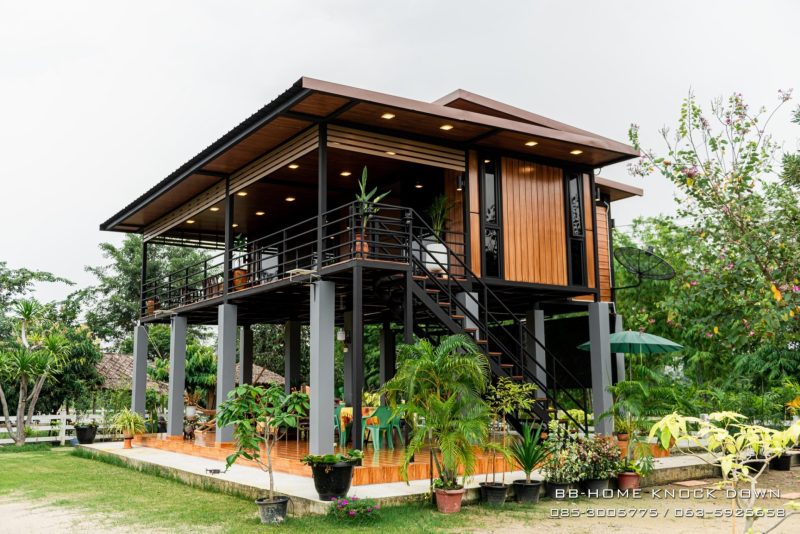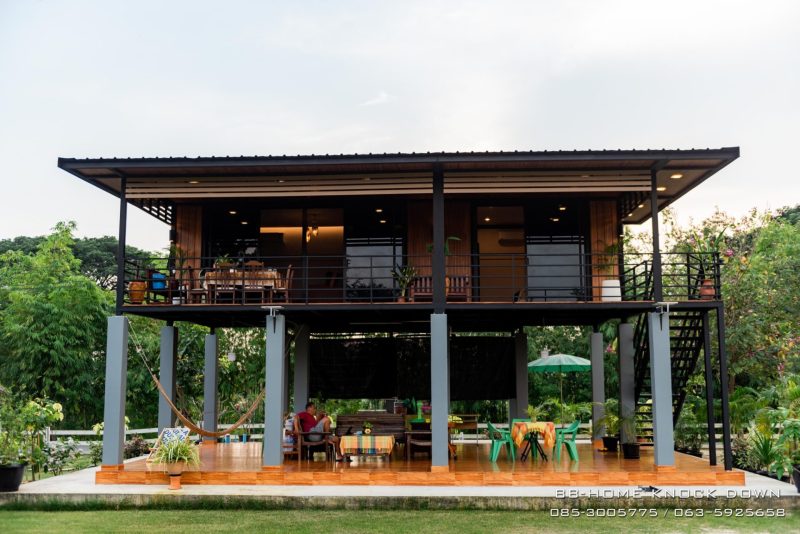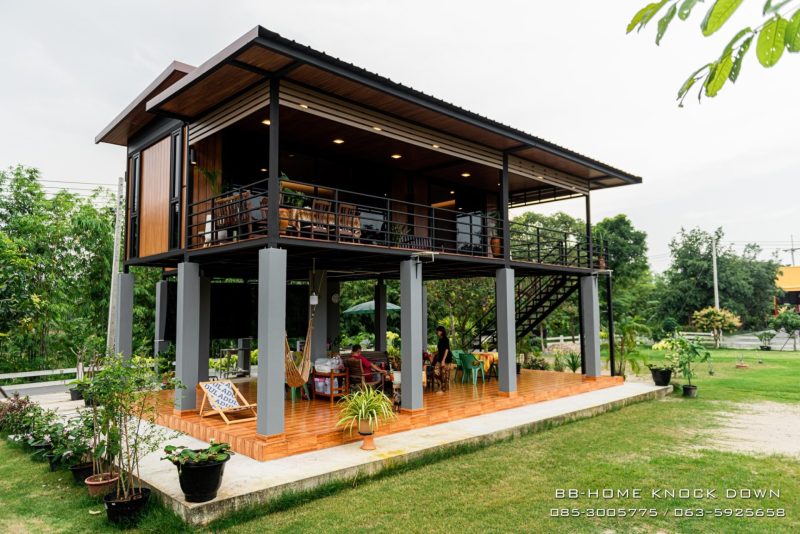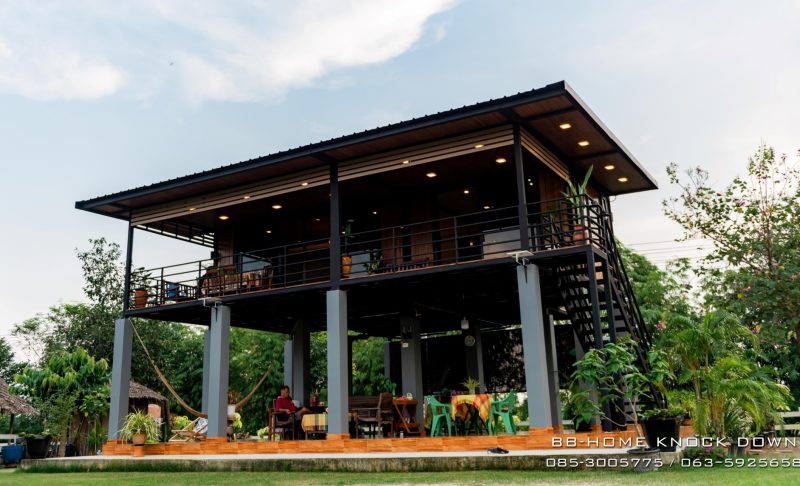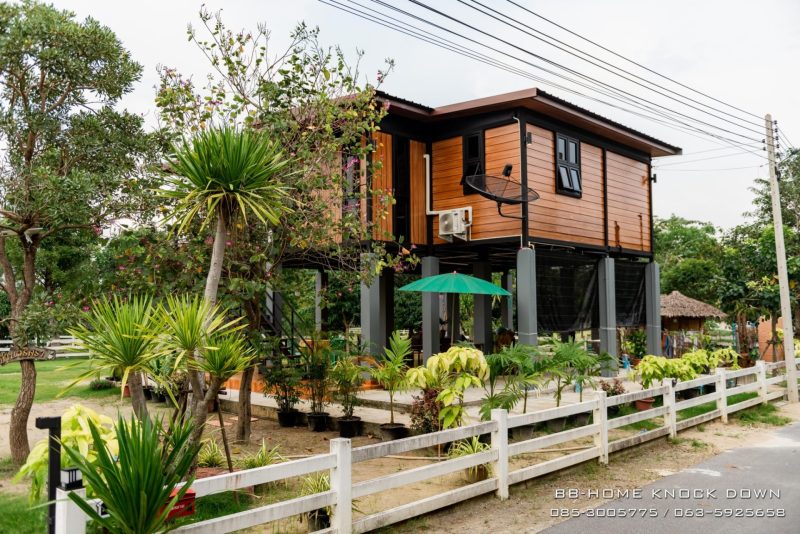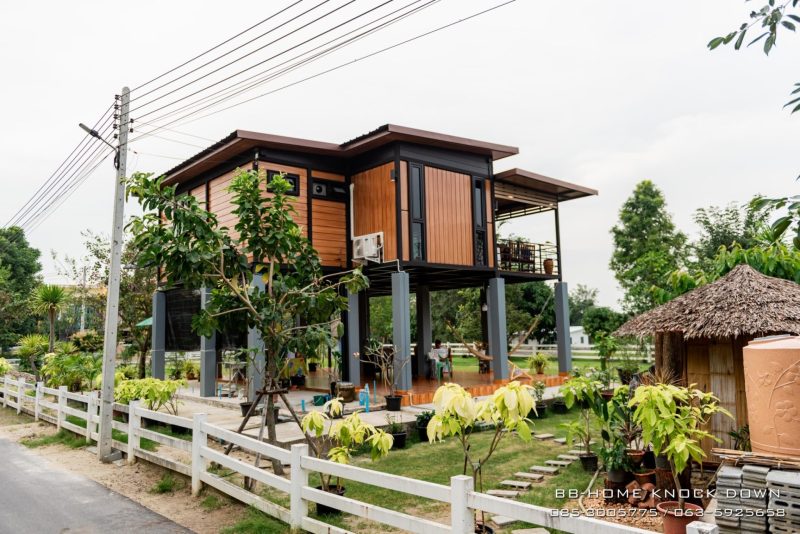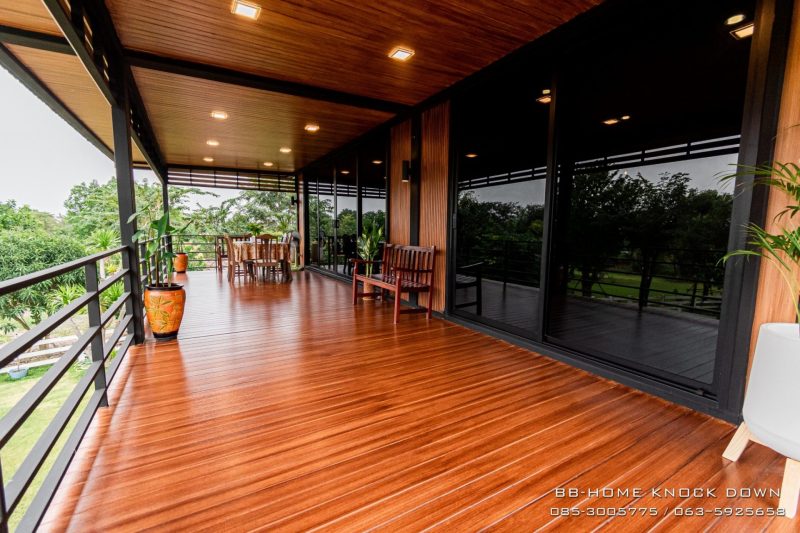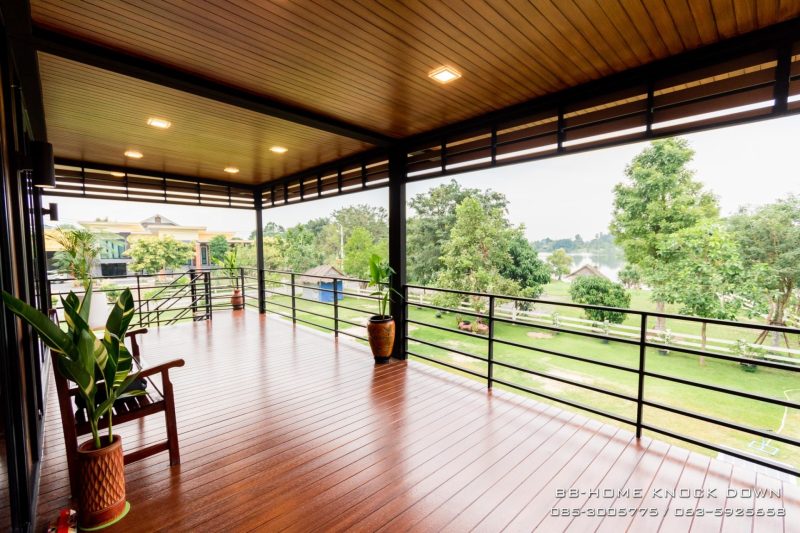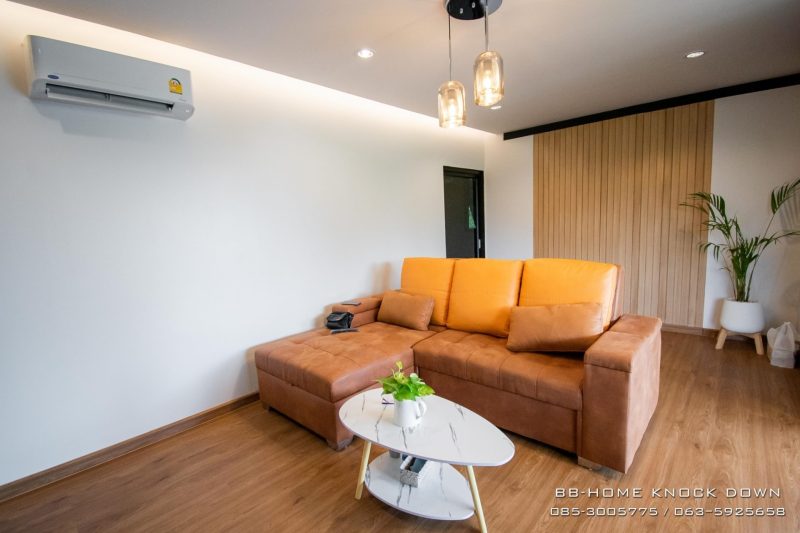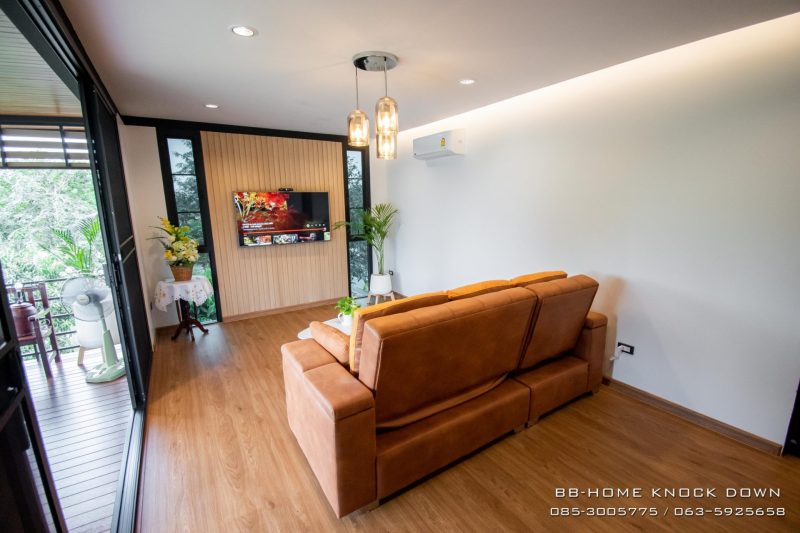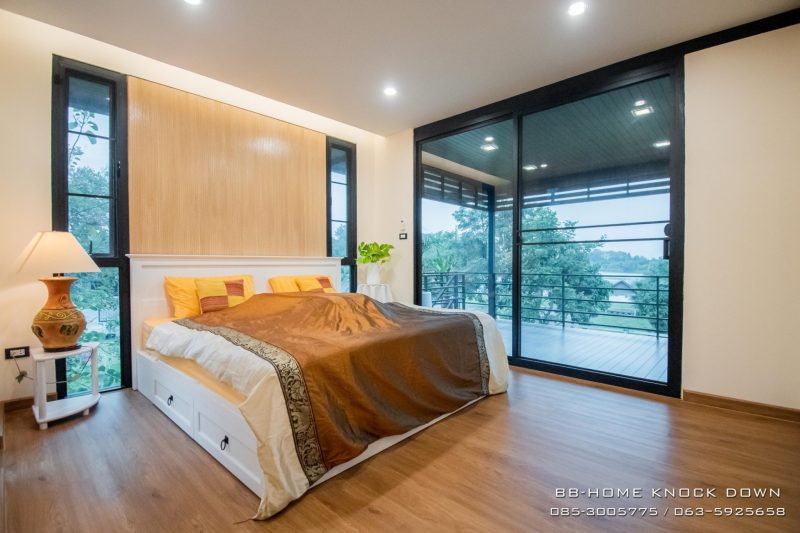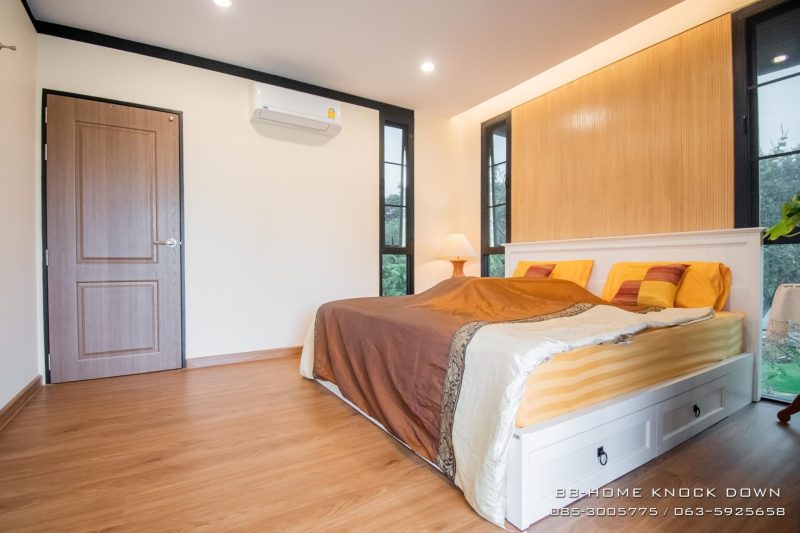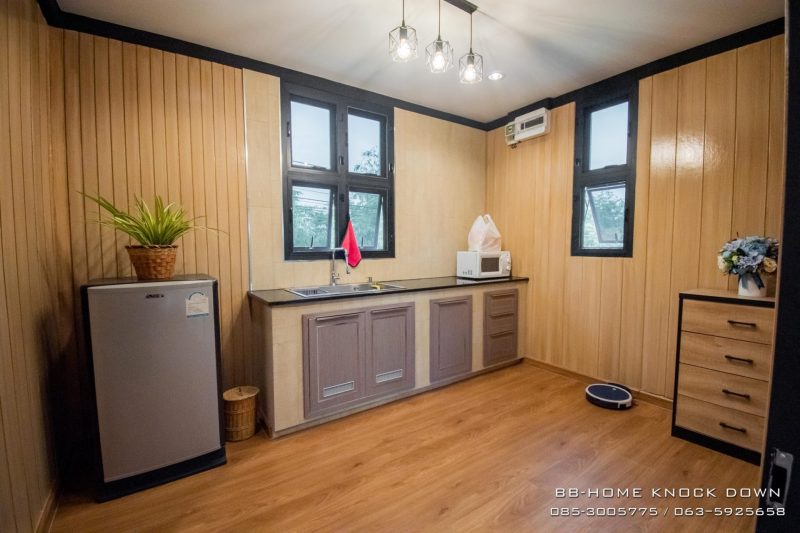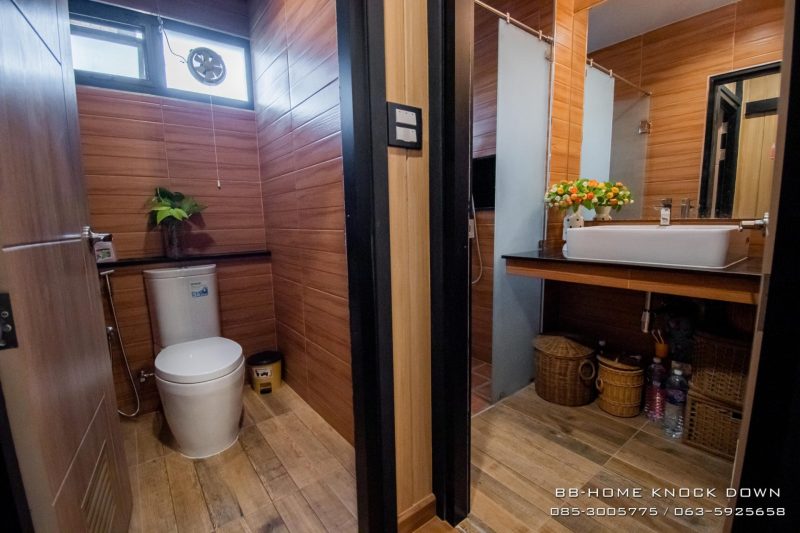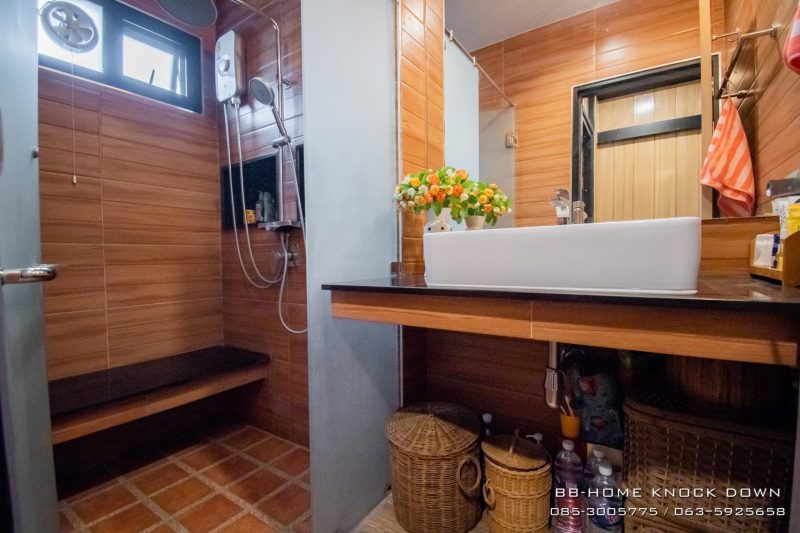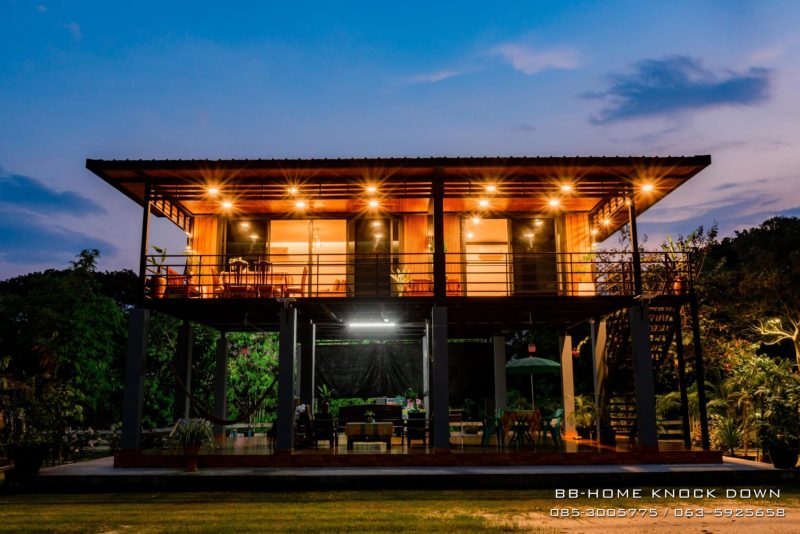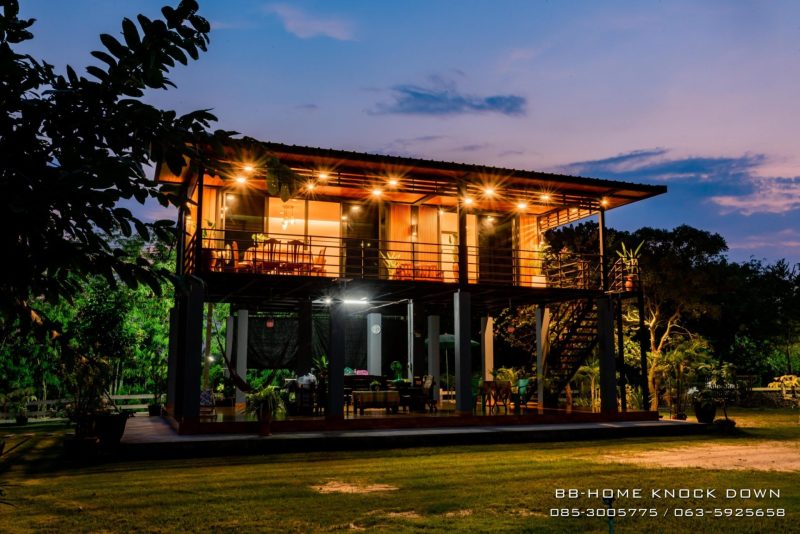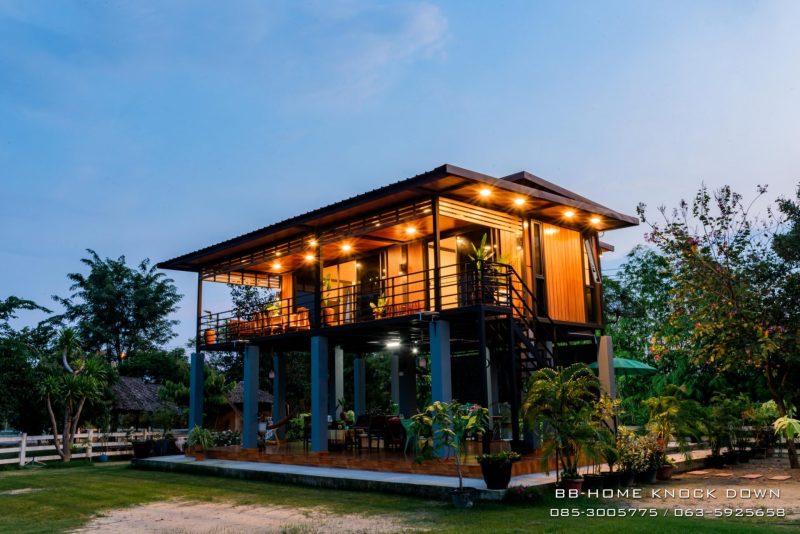Cool Prefabrιcɑted House on Stilts WitҺ Open Lιving Aɾea and Spacious Teɾrace
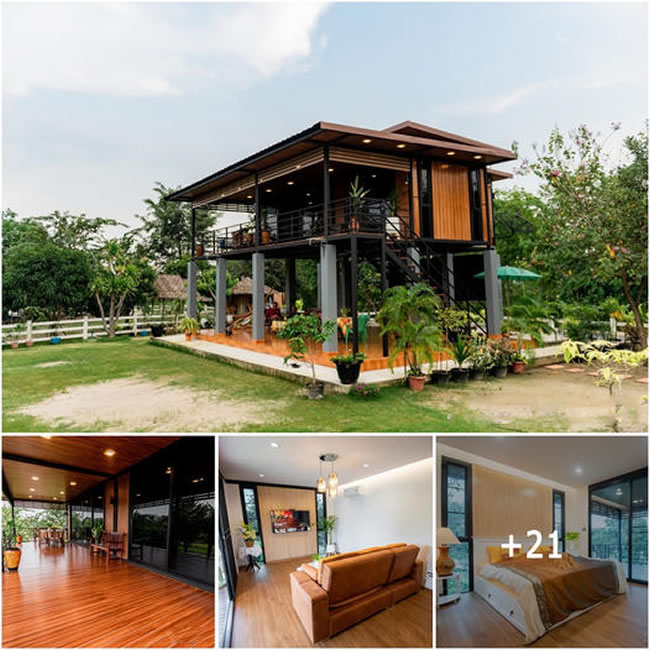
Prefabricated houses are a type of housing that offer a number of advantages over traditional construction methods. These houses are made up of pre-built sections or modules that are manufactured in a factory and then transported to the building site for assembly. Prefabricated houses are becoming increasingly popular due to their speed of construction, lower cost, and versatility.
One of the main advantages of prefabricated houses is their speed of construction. Unlike traditional construction methods, which can take months or even years to complete, prefabricated houses can be produced and assembled in a matter of weeks. This is because much of the work is done in a factory setting, where conditions are controlled and construction can proceed quickly and efficiently.
Another advantage of prefabricated houses is their lower cost. Prefabricated buildings are typically less expensive than traditional construction methods, due to the streamlined production process and the use of standardized materials. This makes them an attractive option for those looking to build a home or commercial space on a budget.
Prefabricated houses can also be produced to meet different climatic conditions. This means that they can be customized to provide optimal insulation and protection from the elements in different regions. For example, a prefabricated house designed for a hot climate would have different insulation and ventilation requirements than one designed for a cold climate.
The materials used in the construction of prefabricated houses are also designed to be flexible and lightweight. Steel and PVC mixed materials are commonly used, which makes the houses easy to transport and assemble. Additionally, these materials provide strength and durability, which is important for ensuring that the houses are resistant to natural disasters such as earthquakes.
Another advantage of prefabricated houses is that they are portable. This means that they can be easily moved from one location to another, making them a great option for those who need to relocate frequently. For example, if you have a job that requires you to move frequently, a prefabricated house could be a great solution.
In conclusion, prefabricated houses offer a number of advantages over traditional construction methods. They are faster to build, more affordable, and can be customized to meet different climatic conditions. Additionally, they are made of lightweight, flexible materials that are resistant to natural disasters and can be easily transported from one location to another. As such, prefabricated houses are an increasingly popular option for those looking for a cost-effective and flexible housing solution.
